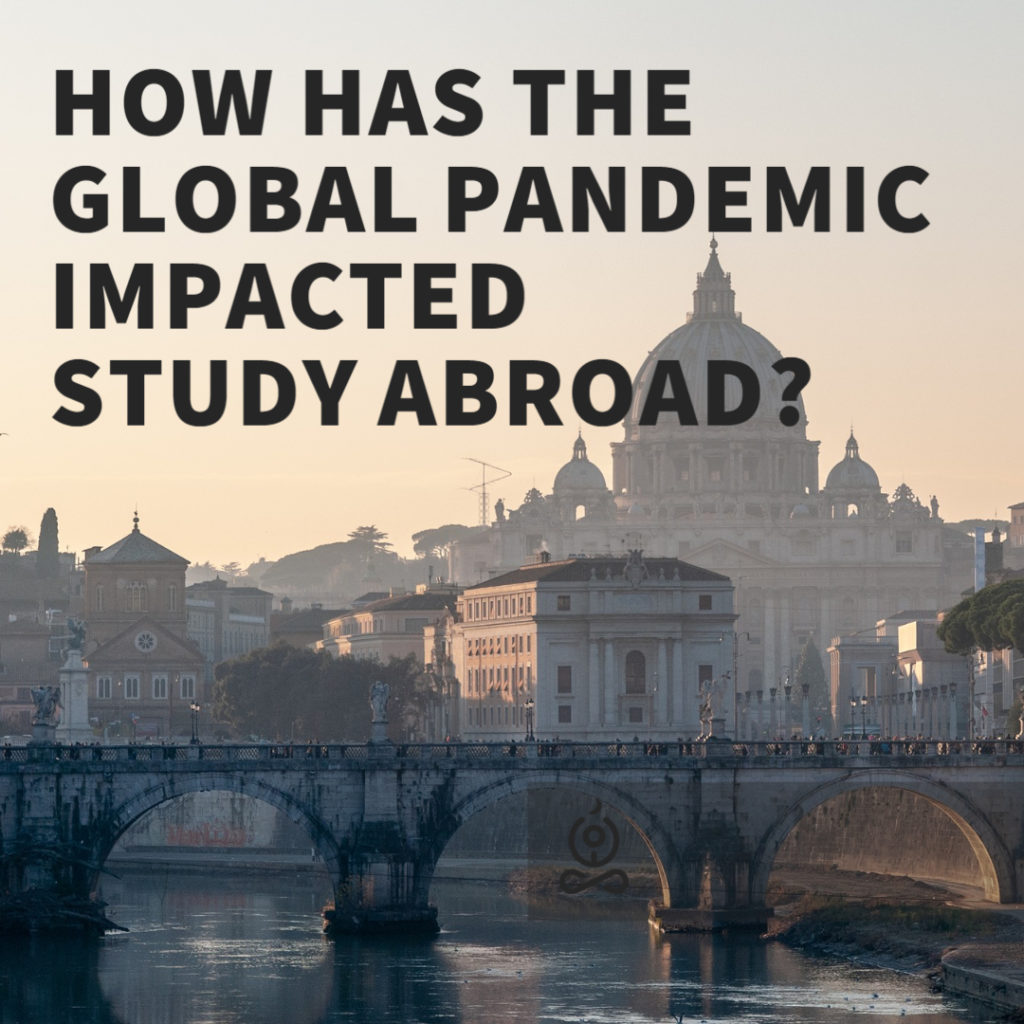
Students of all ages around the world are currently facing a truly peculiar bump in the academic road. At what seems to be the pinnacle of the global COVID-19 pandemic, academic institutions are making large changes to their curriculums. Whether it be by moving to an online-administered program, cancelling events or classes, or shutting down entirely; students across the globe are coping with the changes of their school’s transitions during the pandemic.
Study abroaders of all ages are facing the ramifications as well. What does the pandemic exactly mean for study abroad students? In the past month here between in Italy and Spain, I’ve witnessed students being sent, both willingly and unwillingly, back to their home countries, students being sent to other countries to carry out the remainder of their study abroad where the virus has not yet reached, and students who choose to stay in these countries despite the situation. I myself identify as an international student and professional abroad, studying and working in Italy and Spain. I chose to stay, in spite of the pandemic. It is my hope to share with students and parents alike the effect that COVID-19 is currently transmitting onto the study abroad community, from here in Southern Europe.
To begin, we must remember that study abroad programs in both high school and college vary in style, teaching methods, topics, location, etc. Different students are facing extensively different situations as a result of the virus.
Institutions and programs with study abroad and/or international students in attendance are adapting massively diverse approaches as to continuing the education and safety of these students in particular. In Italy and Spain, study abroaders are generally being given the option as to whether or not they want to return home or stay in these countries. Schools and universities have been closed entirely for safety measures, and most (including my own!) have moved to providing online lectures and activities for their students.
While boarders have closed in several countries, nationals of these countries (including the USA) are able to return home from their study abroad programs if required/chosen.
This means that study abroad students are indeed able to reenter their home country, regardless of the closed boarders. Self-quarantine, aka Staying home, is generally requested or required at this time when returning home from abroad. Some European countries are taking precautions such as providing quarantine institutions to groups of nationals who have returned from abroad, for a span of 14 days before they are reintegrated into their family homes. Ultimately, what this means is that study abroaders are indeed able to return home at this point, if they so choose or are required to do so.
For those of us students who have chosen to stay in Europe during this period, life is continuing as normally as possible.
Instead of leaving the house and going to school, we set up at our desks at home with a laptop, ready for class. Instead of having a coffee all together after the lecture, we step out onto the balcony to see if any neighbors are in sight for a well-distanced chat. Perhaps the most difficult reality we face during this time is that the experience we study abroaders had envisioned is not going to be entirely brought to life at this time.
With that said, the community of international students and professionals is always unified, even more so in times of crisis. I’ve seen internet campaigns of support, tutors and teachers offering free language classes online so that we may continue to practice despite the consequences, and new forums for questions and concerns so that the international community may help each other. It’s not only extremely helpful, but also very uplifting.
Finally, we keep spirits high by knowing that study abroad can and will continue as usual once the pandemic has passed.
As the world changes, we must adapt with it. Study abroad professionals and academic leaders on this side of the ocean have already worked incredibly hard and quickly to make sure that students are safe, well-informed, and able to continue their education to the best of their ability. There are still, and will be, more opportunities to study abroad both in here in Southern Europe and beyond as we move forward in time.
For high school students who are looking to join us this summer with Abbey Road Programs, here’s some cool news:

Social Media Ambassador Scholarships are Abbey Road’s most popular Student Ambassador award. Designed to promote study abroad and cross-cultural awareness through student stories and images, scholarship recipients are asked to share their summer experiences with their peers by posting pictures, videos and blogs on their social media accounts. Outstanding contributors are profiled and their work is showcased on the Abbey Road website. We award 3-5 Social Media Ambassador Scholarships per summer program.
______________________________________________________
Today’s guest post is by Shannon O’Brien, European Coordinator at Abbey Road Programs.
Shannon is an American expat whose career in Europe began with a study abroad experience in Spain when she was in high school. She is still active in the study abroad community in Italy and Spain, and works as European Coordinator for Abbey Road Programs, assisting other students in pursuing international educations.
